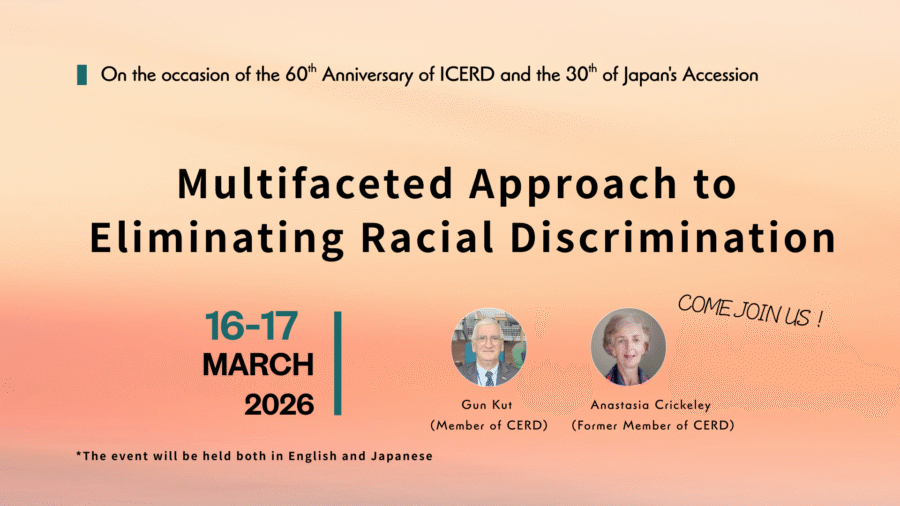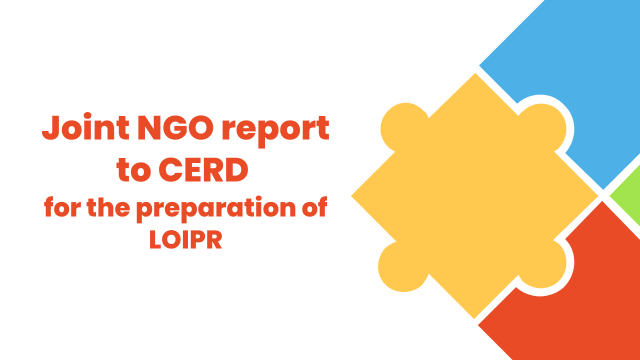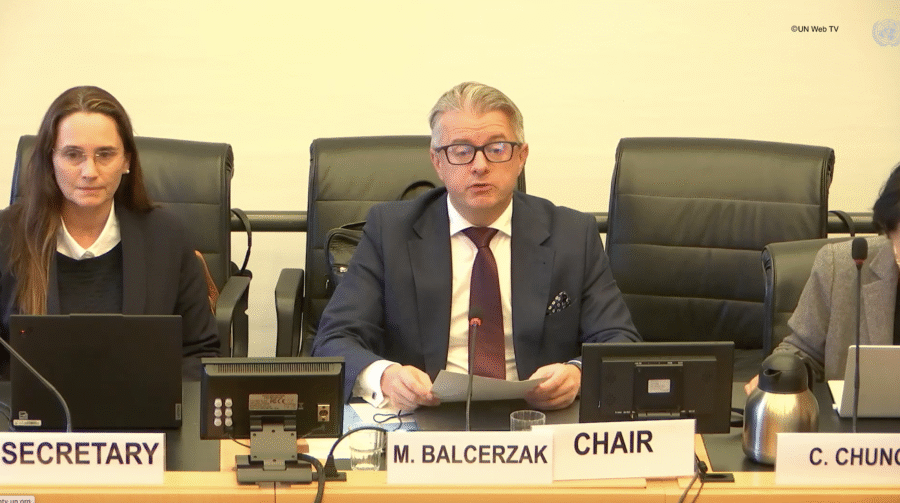Joint Statement: 101st session of the Committee on the Elimination of Racial Discrimination
August 5, 2020
Joint Statement: 101st session of the Committee on the Elimination of Racial Discrimination
5 August 2020
Thank you, Madam Chair,
We thank the Committee for providing us with an opportunity to speak at this historic online session today. We hope that this practice will be strengthened to have broader civil society participation in future sessions, especially from the national level.
The COVID-19 pandemic has had a disproportionate impact on people belonging to racialised communities such as people of African-descent, minorities, people discriminated on the basis of caste or descent, indigenous peoples, stateless persons, migrants including refugees and asylum-seekers. Decades, if not centuries, of structural racial discrimination has made them particularly vulnerable to the consequences of the pandemic. They are overrepresented in frontline and informal jobs for which working-from-home is simply not possible. They have limited access to health care, nutritious food, non-crowded accommodation, adequate water and sanitation, clean air, and information about the coronavirus in their own languages. Racist hate speech, hate crimes and racial profiling that first targeted Asians and people of Asian-descent are now also directed to other groups including migrants, Roma and Travellers. Racial discrimination in law and in the administration of justice continues to keep these marginalised groups overrepresented in detention and prison facilities. At the same time, these grounds intersect with other layers of discrimination such as religion or belief, age, disability, sex, gender identity, and sexual orientation that increase the negative dynamics in the protection of their rights. All of those factors contribute to their vulnerability to the pandemic.
At the 2020 Nelson Mandela Annual Lecture, UN Secretary-General António Guterres rejected the myth that everyone is in the same boat, because “while we are all floating on the same sea, it’s clear that some are in superyachts, while others are clinging to the drifting debris”. The people the International Convention on the Elimination of All Forms of Racial Discrimination (ICERD) seeks to protect are the ones clinging to the drifting debris. This Committee should be a lighthouse for them by working to ensure that States parties provide necessary protection measures and ensure that their responses to COVID-19 do not discriminate or leave behind marginalised populations.
Madam Chair, members of the Committee,
The year 2020 has also been marked by a global call to end racism and racial discrimination, in law-enforcement and beyond. This Committee was the first UN human rights treaty body to issue a statement in response to the police killing of Mr. George Floyd in the United States and the ensuing peaceful protests calling for racial justice. We welcome this timely statement and we support your call for reforms in the police and in the criminal justice system in the United States. The statement contributed to the Human Rights Council Urgent Debate on ‘current racially inspired human rights violations, systemic racism, police brutality and violence against peaceful protests’ held on 17 June. The Committee’s statement once again proved the unique value of the Early Warning and Urgent Action procedures as well as the importance for the treaty bodies to swiftly respond to emergency situations in order to reduce the protection gaps. We encourage the Committee to actively use these procedures to prevent serious violations of the Convention by States parties during the pandemic.
For these reasons, we warmly welcome this first online session despite all the difficulties. This pandemic has certainly confirmed the need to strengthen the capacity of treaty bodies to undertake their work online and continue to engage with States and civil society organisations and to address pressing issues as they arise. Nevertheless, we wish to reiterate the caution in embracing online activities where it comes at the expense of the quality of the meetings and the work, as raised in the TB-Net submission to the Informal Meeting of Chairs in June this year. A safe technology platform, equality in access for all Committee members, interpretation in the Committee’s working languages, and webcasts of public meetings are identified as key requirements for online meetings.
Equally important, the full, meaningful and safe engagement of civil society organisations must be guaranteed. In this regard, we wish to draw your attention to the latest report on emerging digital technologies by the UN Special Rapporteur on contemporary forms of racism, racial discrimination, xenophobia and related intolerance, in which she shed light on the issue of digital divides by racial and ethnic lines as well as among countries. For example, in the United States, only 58% of blacks and 57% of Hispanics have a computer, compared to 82% of whites.[1] The report suggests that blacks and Hispanics in the country are 13-18% less likely to have a broadband connection at home in comparison with whites.[2] By 2015, Aboriginal Australians were 69% less likely to have internet access than non-Aboriginal people.[3] While 80% of individuals use the Internet in Europe, only 22% do so in Africa.[4]
These statistics indicate that racialised communities continue to face barriers in access to the UN human rights mechanisms, including this Committee, despite the shift to online procedures. Confinement measures and their physical and economic consequences are also posing particular challenges to civil society organisations as they try to continue to monitor States’ implementation of the Convention, to document human rights violations, and to report to this Committee. Yet, the monitoring and accountability work of civil society organisations will be more crucial than ever in the coming months and years to ensure that States comply with their treaty obligations. We therefore recommend that the engagement with civil society organisations is enhanced and not reduced through online working methods and that the Committee ensures flexibility and inclusivity in this process. Online engagement should complement, and not replace face-to-face meetings with civil society.
We express our appreciation to the Committee and its Secretariat for the timely and transparent communications of the information about the 101st session, including the plan to consider follow-up reports, communications, measures under the Early Warning and Urgent Action procedures, and the draft General Recommendation No.36 on preventing and combating racial profiling. Timely and easily accessible information about the plans for online meetings and future sessions is key for the Committee to remain inclusive. Most importantly, in the very likely event that the impossibility to hold in-person meetings persist beyond this session, we strongly call on the Committee and the Office of the High Commissioner for Human Rights (OHCHR) to actively seek solutions for technical challenges to undertake reviews of periodic reports from States and hold constructive dialogues remotely on a temporally basis, without further delay.
To conclude, Madam Chair, allow us to congratulate the new members of the Committee and those who have been re-elected in that position. We would also like to congratulate you Madam Chair as well as the Vice-Chairs for your appointments, and the Rapporteur for her reappointment. We look forward to working with all of you as civil society partners to support the maximum implementation of the Convention and the fulfillment of the Committee’s important mandate during this trying period.
Thank you, Madam Chair.
[1] A/HRC/44/57, paragraph 22
[2] Ibid
[3] Ibid, paragraph 23
[4] Ibid, paragraph 20





